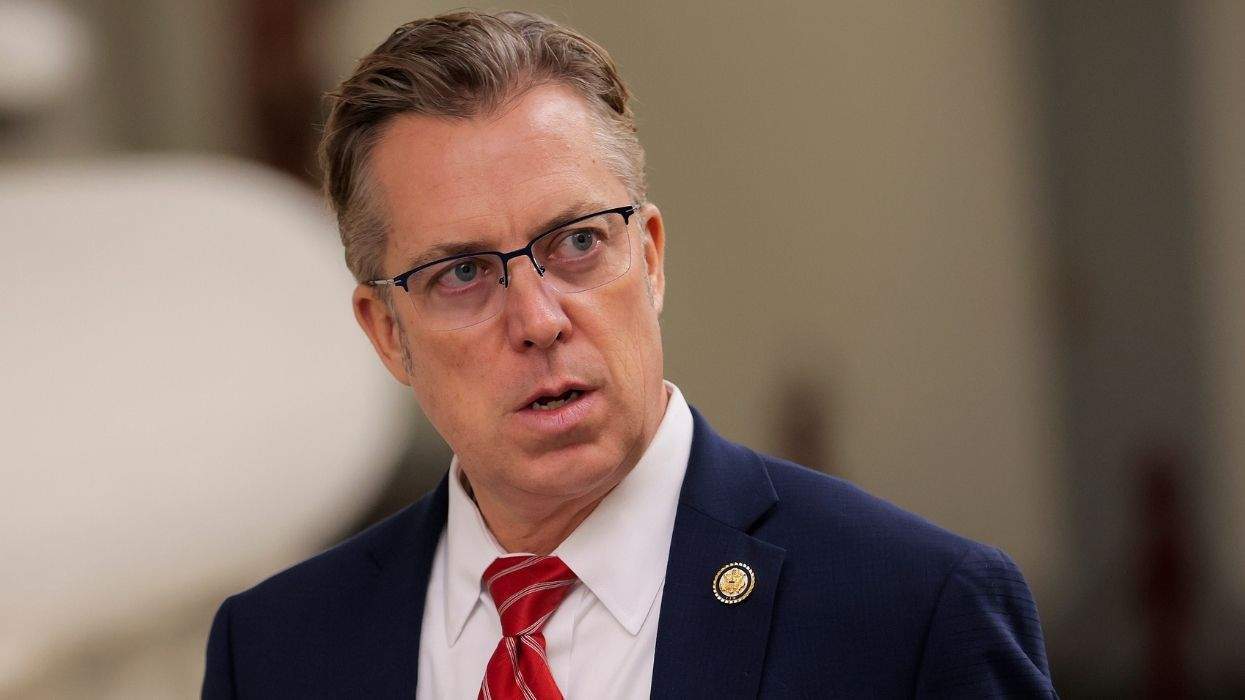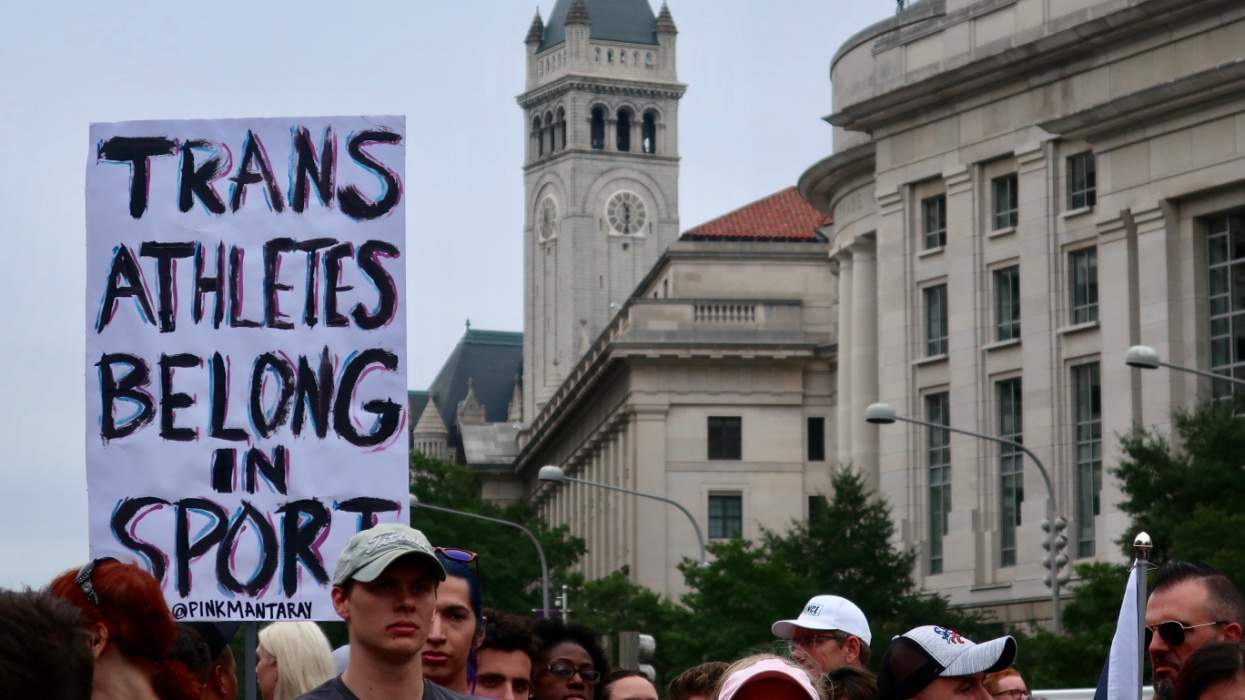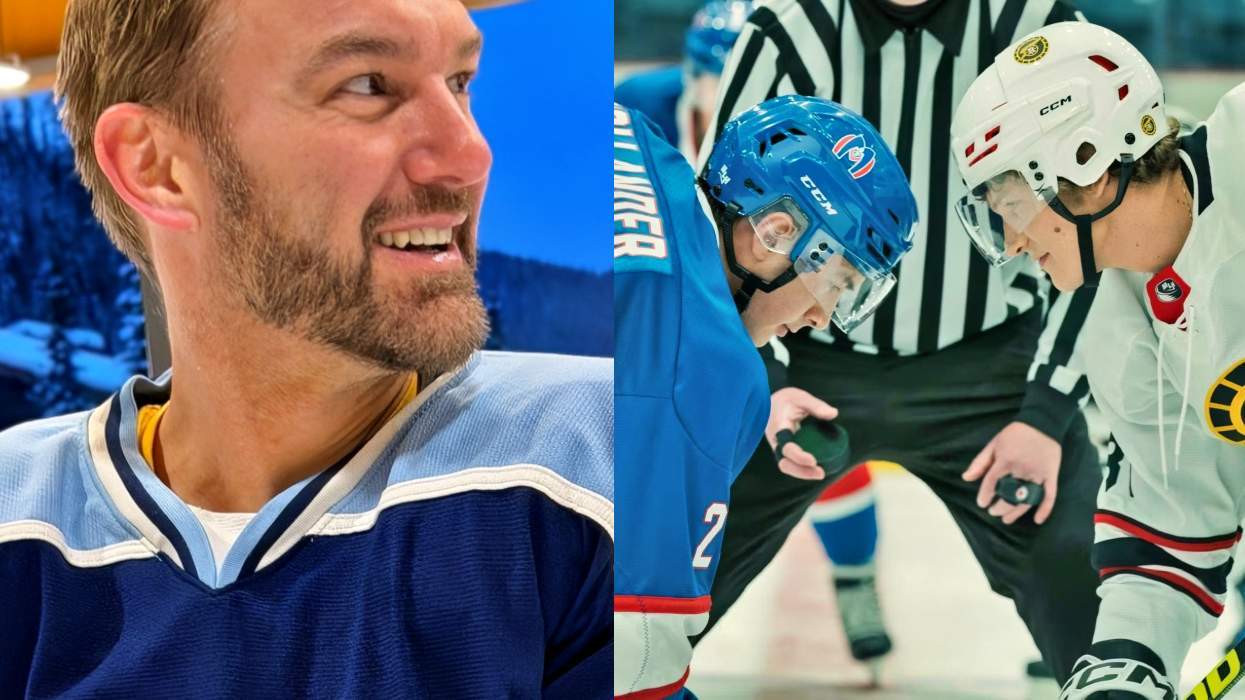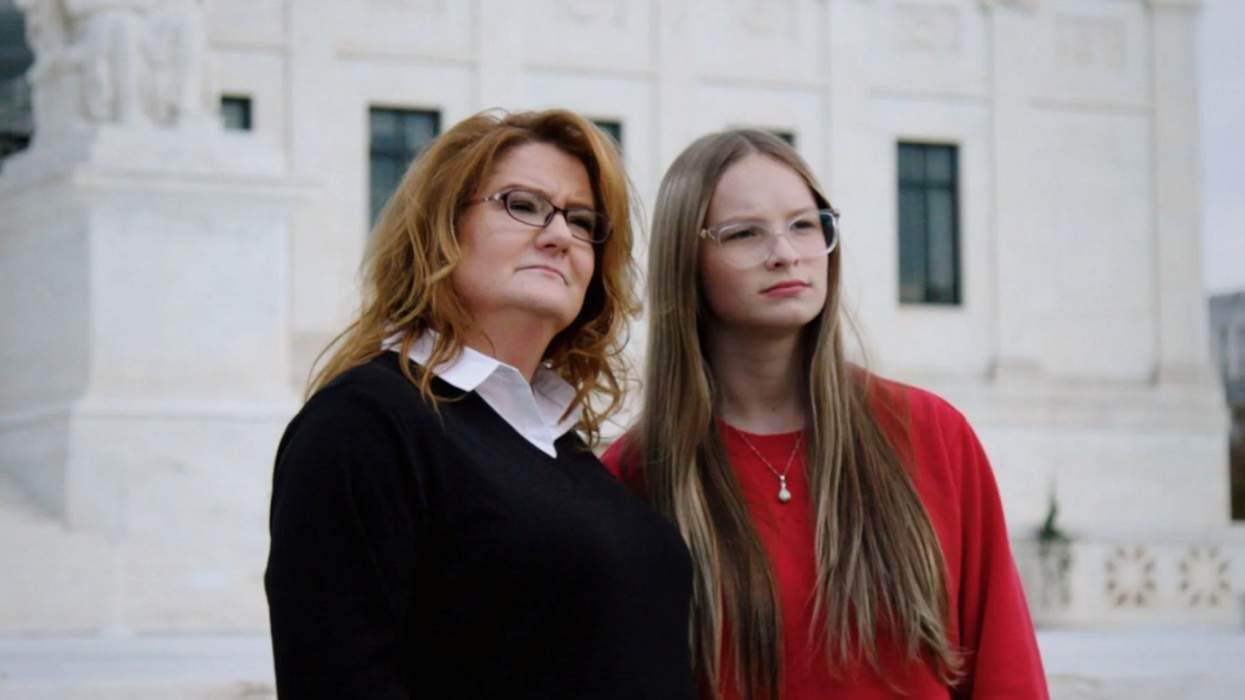Want to tackle antigay language in sports? Organize a Pride game.
A groundbreaking new study shows that holding a diversity-themed game in support of LGBTQ+ people can decrease the use of homophobic slurs like "fag" by 40 percent among players.
In the findings, 38 percent of hockey players who participated in these games reported using a slur in the past two weeks, compared to 61 percent of players who had not participated.
Pride players also reported a decrease in hearing slurs from teammates (54.1 percent heard them vs. 69.3 percent of non-Pride players). Although none of the players identified as gay or bisexual, an overwhelming majority (91.6 percent) claimed "a gay player would feel 'very' welcome on my team."
The study, supported by the Australian government, Salesforce, You Can Play, and Amnesty International, polled the eight teams of the Australian Ice Hockey League, where over one-quarter of the players are from the U.S. or Canada.
"Pride games have proven lucrative to sports teams through ticket and merchandise sales and studies show they improve a team's reputation and can help to attract sponsors," said Erik Denison, the study's lead author from Monash's School of Social Sciences. "We were interested in whether Pride games help reduce homophobic language and make sports more welcoming for LGBT people."
Maxime Langelier-Parent, a study participant and head coach of the Melbourne Mustangs, said that younger players often adopt antigay language from older teammates, and Pride games are "just one step" of breaking the "vicious cycle."
"I think that Pride games help to short-circuit the cycle of this language being passed from one generation to the next," he said. "We obviously need to do a lot more education to change the culture."
In addition to holding Pride games, Denison said sports organizations must live up to their promise of making leagues "inclusive for everyone" by improving communication about the hurtful effects of these terms -- such as harming the mental health of young LGBTQ+ fans and athletes -- and no longer accepting the excuse of their usage as "locker room talk."
"Sport leaders need to acknowledge this language is common and do a better job of communicating to athletes why this language is harmful and needs to stop," Denison said. "This is not about stopping banter in sport, but instead, it is about encouraging 'better banter' that is not harmful."















